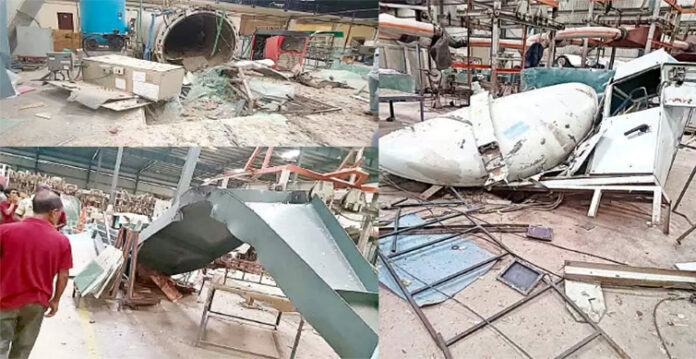Despite the presence of multiple labour welfare laws, thousands of workers in Telangana’s Shadnagar constituency continue to toil under dangerous, unregulated, and exploitative conditions. The region, comprising the mandals of Kothur, Nandigama, Shadnagar, and Kondurg, has emerged as an industrial hub housing over 300 micro, small, medium, and heavy industries employing more than 35,000 workers. Alarmingly, around 80 percent of these units fall under the polluting category, with minimal compliance to safety or health standards.
A significant portion of the workforce consists of migrant labourers from other states. These workers are often forced to operate in high-risk environments without proper protective equipment or access to healthcare. The Inter-State Migrant Workmen Act, 1979—enacted to safeguard migrant workers—remains largely ignored. There have even been reports of fatal accidents being covered up, with victims’ bodies secretly disposed of and families either uninformed or offered unofficial compensation to avoid legal consequences.
Since the formation of Telangana in 2014, industrial accidents have officially claimed dozens of lives in the constituency: nine deaths in 2014, 11 in 2015, 10 in 2016, 12 in 2017, nine in 2018, two in 2019, three in 2020, two in 2021, four in 2022, four in 2023, and eight in 2024. Activists believe these figures may represent only a fraction of the true toll due to poor reporting and lack of transparency.
Also Read:Safety Crisis in Shadnagar Industries: Calls for Accountability Grow After Fatal Explosion
A particularly gruesome incident occurred on June 29, 2024, at South Glass Industry, where at least ten migrant workers reportedly lost their lives. Authorities rushed to conclude formalities before the media or political opposition could intervene. The status of compensation and the fate of the victims’ families remain unclear, casting doubt on the government’s commitment to labour welfare.
The situation for construction workers in the region is equally grim. With an estimated 10,000 to 15,000 labourers engaged in trades such as masonry, carpentry, plumbing, and granite work, nearly 70 percent remain undocumented. The Construction and Other Workers Welfare Board, established in 1996, has failed to reach most of these workers, rendering its 11 welfare schemes largely ineffective.
Labour rights advocates are calling for urgent intervention, stricter enforcement of existing laws, and greater accountability from both industry and government officials. Without systemic reform, the workers of Shadnagar face a future of continued exploitation and preventable tragedies.
(This story is sourced from a third-party syndicated feed. Raavi Media takes no responsibility or liability of any nature. Raavi Media management/ythisnews.com can alter or delete the content without notice for any reason.)


